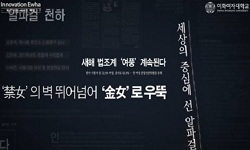본 연구의 목적은 1990년대에 새로운 사회운동으로 부각되고 있는 한국의 여성운동은 1980년대에 민중운동으로 출발하여 90년대에 시민운동으로 성장해 온 역사적 연속성(continuity)을 가진 새...
http://chineseinput.net/에서 pinyin(병음)방식으로 중국어를 변환할 수 있습니다.
변환된 중국어를 복사하여 사용하시면 됩니다.
- 中文 을 입력하시려면 zhongwen을 입력하시고 space를누르시면됩니다.
- 北京 을 입력하시려면 beijing을 입력하시고 space를 누르시면 됩니다.

한국여성운동의 참가의 정치: 1990년대 이후의 여성운동을 중심으로 = Women’s Movements and The Politics of Engagement in Korea
한글로보기https://www.riss.kr/link?id=A103265004
- 저자
- 발행기관
- 학술지명
- 권호사항
-
발행연도
2003
-
작성언어
-
- 주제어
-
KDC
332
-
등재정보
KCI등재
-
자료형태
학술저널
-
수록면
121-146(26쪽)
- 제공처
-
0
상세조회 -
0
다운로드
부가정보
국문 초록 (Abstract)
본 연구의 목적은 1990년대에 새로운 사회운동으로 부각되고 있는 한국의 여성운동은 1980년대에 민중운동으로 출발하여 90년대에 시민운동으로 성장해 온 역사적 연속성(continuity)을 가진 새로운 운동이라는 것을 밝히는 것이다. 이를 위해 전국적인 여성운동 연합체인 한국여성단체연합을 연구대상 으로 하여, 80년대와 90년대의 여성운동의 주요활동과 운동담론의 분석을 시도한다. 연구의 주요 결과를 살펴보면 다음과 같다. 80년대의 여성운동은 배타적이고 권위주의적인 분단국가의 성격과 사회운동의 계급 중심성이 여성 특수 과제보다는 일반적인 사회민주화와 민족의 자주성, 그리고 민중의 권력 획득이라는 삼민이념을 여성운동의 주요 담론으로 삼았다. 그러나 90년대의 여성운동은 동구권의 몰락과 민중운동의 쇠퇴와 정권교체에 따르는 사회 정치적인 변화 과정 속에서 민중 여성운동의 경험을 바탕으로 고용평등, 모성보호, 일상생활의 정치와 같은 여성 특수과제를 내용으로 하는 여성의 권리와 여성적 관점이라는 운동담론을 형성해왔다. 그리고 90년대의 이러한 운동담론은 전국단위의 활동가 조직을 중심으로 다양한 성향을 가지는 여성운동 조직들간의 연합을 이루면서 국내 여성운동의 쟁점들을 국제화하고 여성의제들을 제도정치의 장에서 적극적으로 개진하고 정책으로 만들어내는 참가의 정치 (politics of engagement)로 구현되고 있음을 알 수 있다.
다국어 초록 (Multilingual Abstract)
The results of this study are: 1) In the period of 1980s, women’s movement adoped a Minjung ideology, which was the master frame of the 1980’s Korean social movement. The exclusionary authoritarian nature of Korean military regime and the centrality of class in the distribution of power account in part for the women’s movement’s orientation that gender struggles needed to be waged prior to specific struggles for women’s liberation. 2) In the 1990s, the collective action frame of the women’s movement transformed toward women-specific and women-centered contents. Major women’s issues, such as lifelong equal rights to work, motherhood protection, elimination of sexual violence, reunification of the two Koreas, and everyday life politics have been shaping this frame. Also the study finds that in the end of the 1990s, taking the politics of engagement as a major strategy of women’s movement and using the same policy language, “gender mainstreaming” with the government, women’s movement has been plays a role in addressing women’s interests and women’s rights in institutional politics.
This study examines the continuity and newness of the present Korean women’s movement, which was started as a social movement for social democracy and people’s liberation in the 1980s. In doing so, the study analyzes the collective action frames r...
This study examines the continuity and newness of the present Korean women’s movement, which was started as a social movement for social democracy and people’s liberation in the 1980s. In doing so, the study analyzes the collective action frames revolving around priority issues of women’s movement in two comparable periods, the 1980s and 1990s.
The results of this study are: 1) In the period of 1980s, women’s movement adoped a Minjung ideology, which was the master frame of the 1980’s Korean social movement. The exclusionary authoritarian nature of Korean military regime and the centrality of class in the distribution of power account in part for the women’s movement’s orientation that gender struggles needed to be waged prior to specific struggles for women’s liberation. 2) In the 1990s, the collective action frame of the women’s movement transformed toward women-specific and women-centered contents. Major women’s issues, such as lifelong equal rights to work, motherhood protection, elimination of sexual violence, reunification of the two Koreas, and everyday life politics have been shaping this frame. Also the study finds that in the end of the 1990s, taking the politics of engagement as a major strategy of women’s movement and using the same policy language, “gender mainstreaming” with the government, women’s movement has been plays a role in addressing women’s interests and women’s rights in institutional politics.
목차 (Table of Contents)
- I. 들어가는 글
- II. 한국 여성운동의 연속성(continuity)과 새로움
- III. 여성운동 담론의 변화: 여성의 권리와 여성적 관점으로
- IV. 참가의 정치를 통한 여성운동의 제도정치 참여
- I. 들어가는 글
- II. 한국 여성운동의 연속성(continuity)과 새로움
- III. 여성운동 담론의 변화: 여성의 권리와 여성적 관점으로
- IV. 참가의 정치를 통한 여성운동의 제도정치 참여
동일학술지(권/호) 다른 논문
-
- 한국NGO학회
- 김영래(Kim, Young-rae)
- 2003
- KCI등재
-
시민사회 그리고 NGO NPO의 개념: 공공성을 중심으로
- 한국NGO학회
- 김상준(Kim, Sang-jun)
- 2003
- KCI등재
-
- 한국NGO학회
- 임현진(Lim, Hyun-chin)
- 2003
- KCI등재
-
- 한국NGO학회
- 이원웅(Lee, Won-woong)
- 2003
- KCI등재




 스콜라
스콜라




